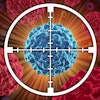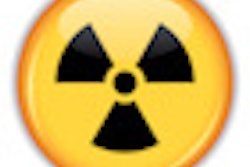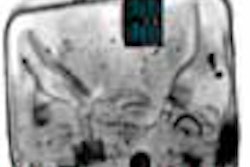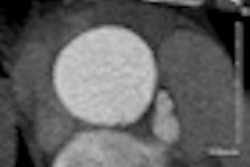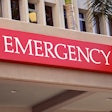There is no significant radiation threat to air travelers from airport scanners, researchers reported March 28 in the Archives of Internal Medicine. In fact, the radiation received in a typical airport full-body scan is equivalent to the background radiation of about nine minutes of flying time, the authors stated.
"Based on what is known about the scanners, passengers should not fear going through the scans for health reasons, as the risks are truly trivial," wrote authors Pratik Mehta from the University of California, Berkeley and Dr. Rebecca Smith-Bindman from the University of California, San Francisco.
The U.S. Transportation Security Administration (TSA) moved forward with its plan to install full-body scanners in airports in response to an attempted bombing by a passenger smuggling explosives hidden in his underwear onto a Detroit-bound jet on Christmas Day 2009. To date, the agency has installed 486 scanners in 78 U.S. airports, with 1,000 installations planned by the end of 2011.
Mehta and Smith-Bindman estimated the risk of radiation exposure among three groups of air travelers: all flyers, frequent fliers, and frequent fliers who are 5-year-old girls. The authors assumed that all passengers undergo a full-body scan for each trip, that 100 million unique passengers will take 750 million flights in a year, and that the exposure of the scans is 0.1 µSv.
Among the 750 million trips per year taken by 100 million airline passengers, an estimated six cancers over the lifetime of these individuals could result from the backscatter scans, compared with 40 million cancers that would normally be expected in the population, the authors wrote.
Among the 1 million frequent fliers who take 10 trips per week for a year (each trip lasting six hours), four additional cancers could occur from the backscatter scans, compared with 400 000 cancers that would normally occur.
The last hypothetical group -- 5-year-old girls who are frequent fliers -- was chosen because children are more sensitive than adults to the effects of radiation, and existing breast cancer prediction models were available. For every 2 million girls who travel one round trip per week, one additional breast cancer could occur from these scans over their lifetime, compared with 250,000 cancers that would be expected to develop otherwise, given a 12% lifetime incidence of breast cancer.
"If individuals feel vulnerable and are worried about the radiation emitted by the scans, they might reconsider flying altogether since most of the small, but real, radiation risk they will receive will come from the flight and not from the exceedingly small exposures from the scans," the authors wrote.




